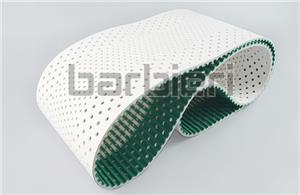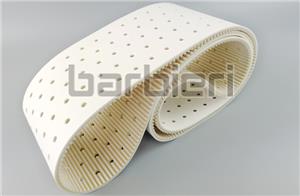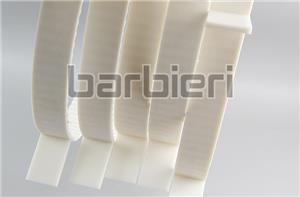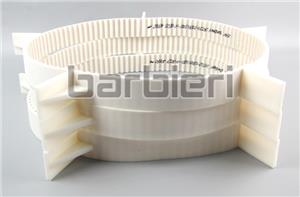The difference between timing pulley and flat belt pulley
There are significant differences between timing pulleys and pulleys in terms of working principles, performance characteristics, and application ranges. The selection should be made reasonably based on the specific application scenarios and transmission requirements.
1. Appearance difference:
Timing pulley also known as the synchronous pulley, has a tooth shape that matches the timing belt. The timing pulley achieves smooth and precise meshing transmission by matching the tooth shape of the timing belt;
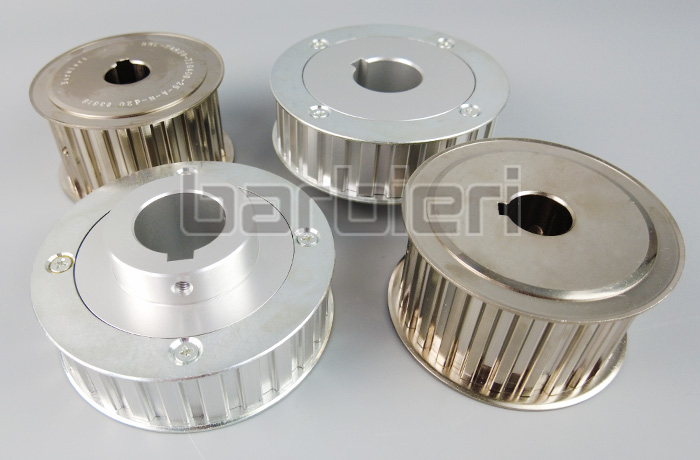
Flat belt pulley also known as smooth wheel, has a smooth surface and no teeth. It relies on the friction between the belt and the wheel for transmission.
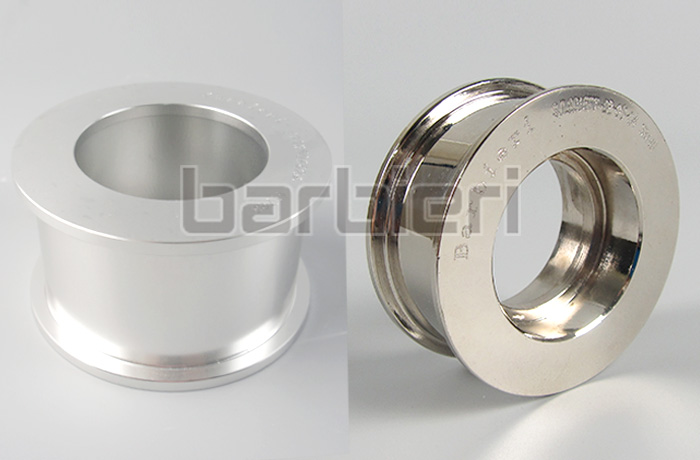
2. Differences in working principles
The timing pulley mainly achieves synchronous transmission of power or motion by cooperating with the timing belt. Its working principle is based on tooth meshing to ensure that there is no slip during the transmission process, thereby maintaining a constant transmission ratio.
The smooth wheel transmits power through the friction between the flat belt and the pulley groove. There is a certain degree of elastic sliding and slipping during the transmission process, and the transmission ratio is relatively unstable.
3. Differences in performance characteristics
The main advantages of the synchronous wheel are accurate, smooth transmission and high efficiency. Due to the tooth meshing, the synchronous wheel will not slip during operation, thus ensuring a constant transmission ratio. At the same time, its transmission process is smooth, the noise is low, and it is easy to maintain and requires no lubrication. In addition, the synchronous wheel also has a large speed ratio range, wide transmission power, and good heat resistance.
In contrast, smooth wheel has a simple structure, is easy to adjust, and has a certain overload protection function, its transmission efficiency is relatively low and it cannot maintain an accurate transmission ratio. The belt life of the smooth wheel drive is also relatively short and needs to be replaced regularly. However, smooth wheel transmission can alleviate load impact, run smoothly, have low noise and low vibration, and is suitable for occasions that do not require high transmission accuracy.
- Polyurethane Timing Belt
- Annular Timing Belt
- Open-end Timing Belts
- AT-series Timing Belts
- T-series Timing Belts
- STD-series Timing Belts
- HTD-series Timing Belts
- RPP-series Timing Belts
- TT5-series Timing Belts
- Imperial Series Timing Belt
- Supported Polyurethane Flat Belt Series
- Double Sided Timing Belt
- ATN-series Timing Belts
- Timing Belt With Backing
- Timing Belt With Fabric
- Timing Belt Punching
- Polyurethane Self-tracking Timing Belt
- Polyurethane Belt With Profile
- Special Processing Timing Belt

